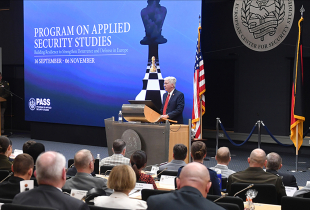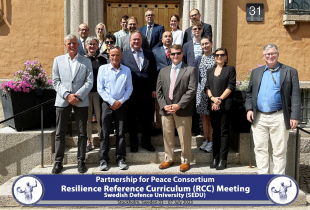
Chapter 3
World Experience of Ensuring Resilience in the Security Sphere
The matter of national resilience has become a topic of major importance for most of the European countries, as well as having acquired a new meaning for international organizations with new challenges and threats including hybrid ones, especially after 2014. The unexpected and varied manifestations of such threats have had an impact on international security and demonstrated the weakness of a number of political instruments and institutions (UN and OSCE) that had been providing peace and stability after World War II. Even more attention has been attracted to the issue of national resilience under conditions of the COVID-19 pandemic.
Significant changes in the global security environment have encouraged both individual states and international organizations to revise their conceptual approaches to ensuring state and society resilience in order to adapt them to new conditions. The world's leading countries and international organizations now deem that the objectives of developing and implementing new national resilience ensuring mechanisms and improving the existing ones are now a high priority.
At the same time, in the last years, various states, international organizations, practices, and some experts, recommend containing the term “resilience” in their contents have become more popular. This raises the need to examine them for correspondence with existential features of the interdisciplinary concept of resilience in the national security sphere.
The George C. Marshall European Center for Security Studies
The George C. Marshall European Center for Security Studies in Garmisch-Partenkirchen, Germany is a German-American partnership and trusted global network promoting common values and advancing collaborative geostrategic solutions. The Marshall Center’s mission to educate, engage, and empower security partners to collectively affect regional, transnational, and global challenges is achieved through programs designed to promote peaceful, whole of government approaches to address today’s most pressing security challenges. Since its creation in 1992, the Marshall Center’s alumni network has grown to include over 15,000 professionals from 157 countries. More information on the Marshall Center can be found online at www.marshallcenter.org.
This publication reflects the views of the authors and is not necessarily the official policy of the United States, Germany, or any other governments, or any other organization.


